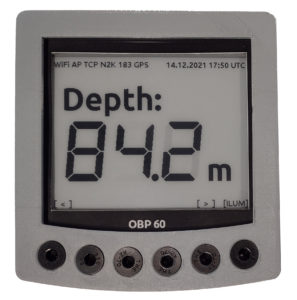Video: https://youtu.be/NCJYmDuf2Jg

The Ruuvi sensor day is a small, smart sensor device. This allows the following data to be recorded:
- temperature
- Humidity
- Air pressure
- 3-axis acceleration sensor
- waterproof case
- Data storage in mobile phone app
- Android and iPhone app available
The data is sent to a data terminal at defined intervals using Bluetooth Low Energy to save energy. This can be a cell phone, for example, where you can look at the data.… Continue reading
First of all, a few important notes that you should definitely pay attention to.
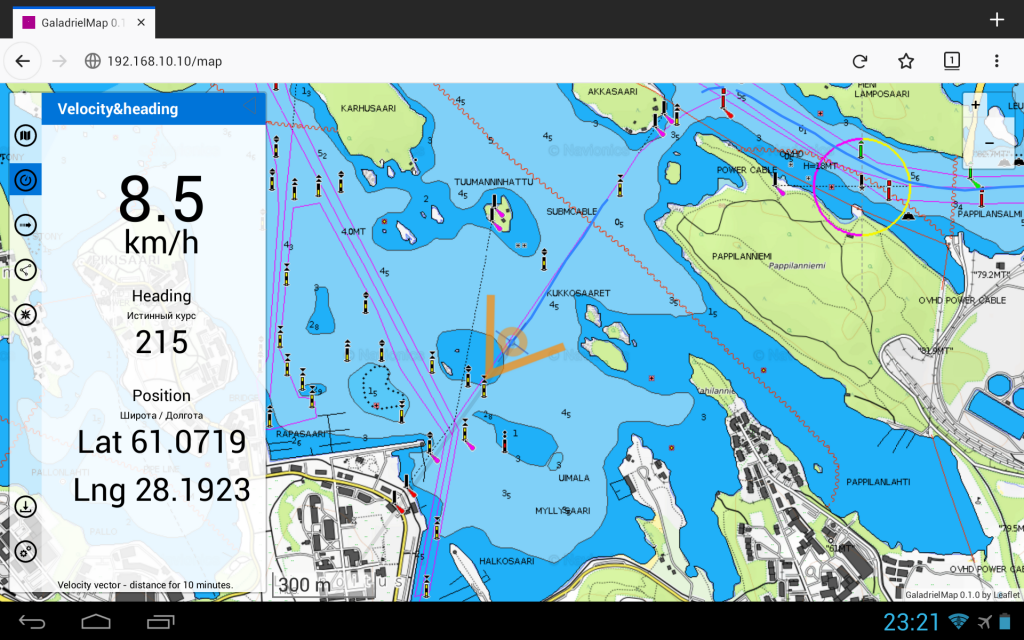
GaladrielMap is a web-based navigation software by Vladimir Kalachikhin. The name of the software is named after its boot. The software is based on a large number of PHP scripts that generate websites and are published via a web server. The websites can be viewed on any device such as mobile phones, tablets and laptops. Continue reading

The AZ touch Mod is a small 2.4 ″ touch color display with 320 x 240 pixels. On the base board can be used as a control unit ESP32C or a Wemos D1 mini be attached. A small breadboard allows you to set up your own circuits to expand the display.
The AZ-Touch has the following features:
- Wall housing 120mm x 80mm x 35mm (W x H x D)
- Resistive touchscreen 2.4 inch (6.14 cm) color TFT with 320 x 240 pixels (ILI9341)
- For D1mini or ESP32 Dev-Kit C V2 / 4
- built-in piezo buzzer
- Integrated 5V voltage regulator (input voltage 9 - 35V DC)
- power consumption approx.
...
Continue reading
First of all, a few important notes that you should definitely pay attention to.
SensESP is a library that facilitates the integration of ESP8266 and ESP32 based sensors and actuators in a signaK network. The framework is based on PlatformIO and is mostly written in C++. Basically, recurring and important functions are mapped by the framework, so that programming and connecting your own sensors to SignalK is quite easy.… Continue reading

https://www.segeln-forum.de/board194-boot-technik/board35-elektrik-und-elektronik/board195-open-boat-projects-org/p2237852-fernbedienung-f%C3%BCr-den-raspberry/#post2237852
After Christian at Boot 2020 in connection with his plotter had introduced a Bluetooth remote control there is now a new IR remote control. It turned out that Bluetooth is not really suitable for a remote control, as there were significant problems with Linux when creating the connection and the remote control did not work as expected.… Continue reading
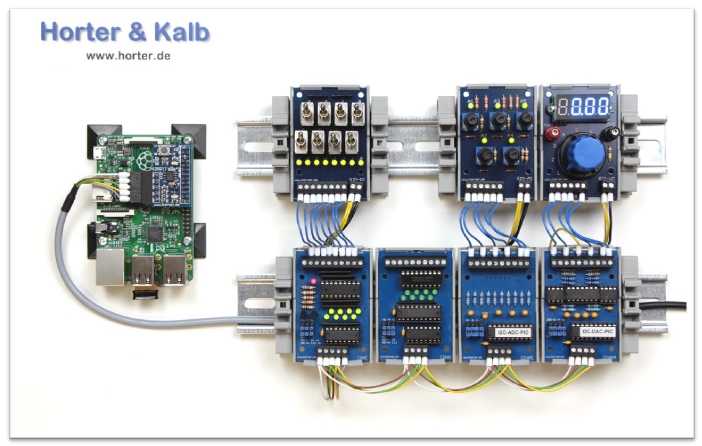
https://www.segeln-forum.de/thread/78183-i2c-io-module-f%C3%BCr-signalk-und-zur-bootsautomation/?postID=2231713#post2231713
The I2CModules of the Horter company (LxW 65x45mm) can be used for boat automation because they can be connected to any microcontroller and the Rasperry Pi. The I2C bus is actually intended for communication between ICs on a circuit board. But there are also numerous Extensions with which the bus signals can be amplified and electrically isolated so that longer distances of up to 50m can be bridged with shielded cables.… Continue reading
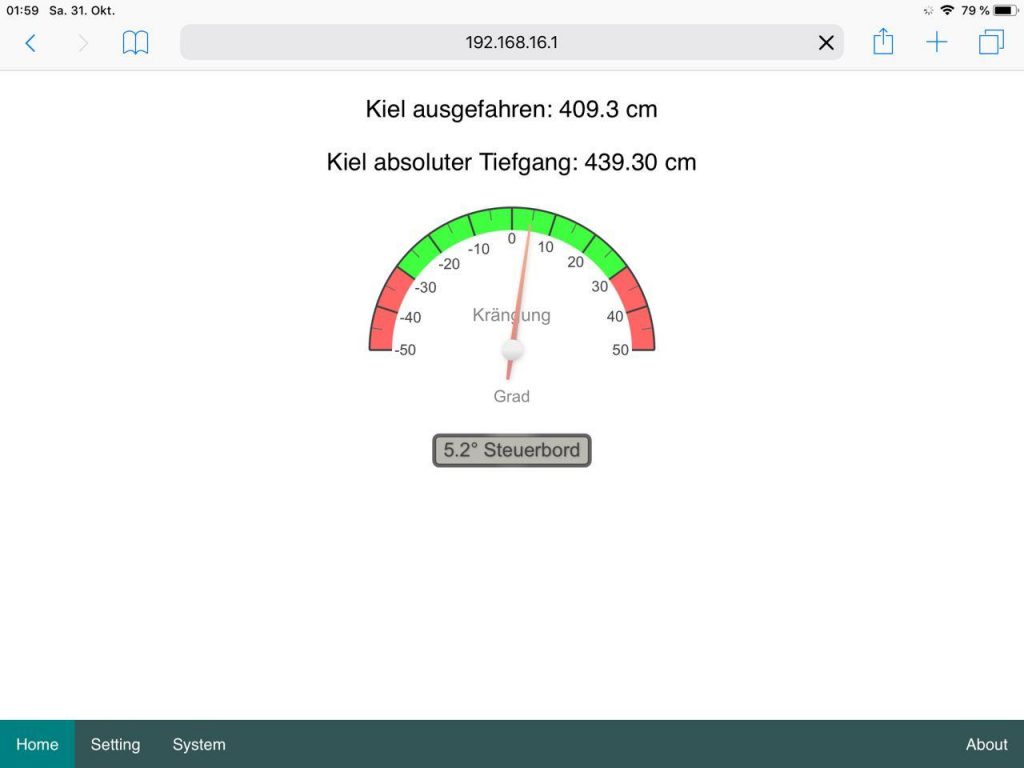
https://www.segeln-forum.de/thread/76840-hubkielsensor-diy/
Gerry from the Sailing Forums built a keel sensor to show the extended depth of a liftable keel. In addition to the keel depth, the heel is also displayed. The keel depth is measured using an ultrasonic sensor. For this purpose, the sensor is mounted inside the keel box and looks down on the lowered keel. The measurement data can be transmitted via WLAN, for example… Continue reading
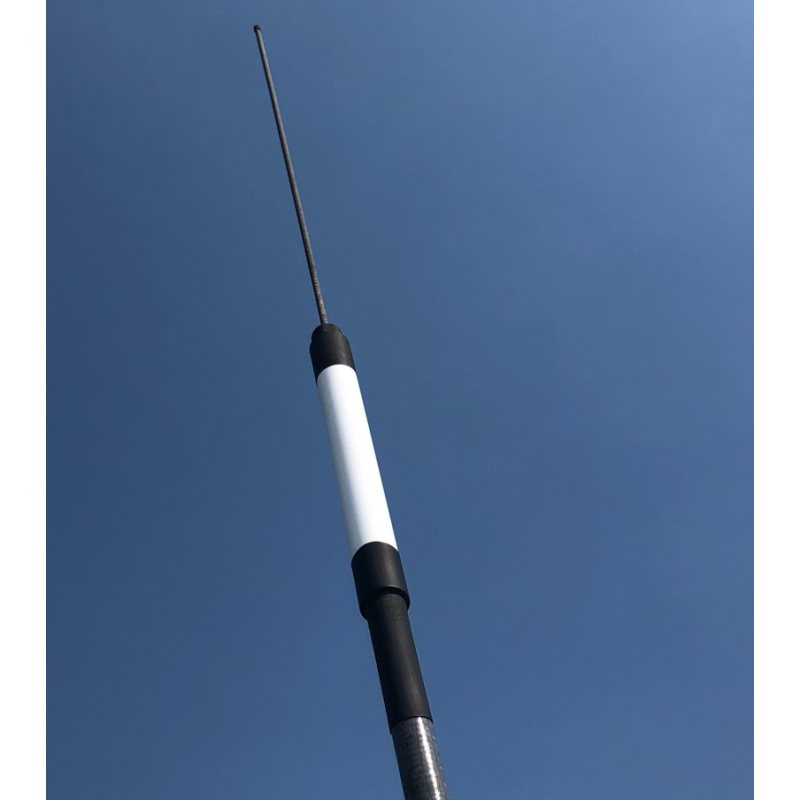
Fig.MAIANA AIS transponder transmitting and receiving part with fixed antenna (Open Marine)
Peter Antypas self-built an AIS class B receiver / transmitter and presented it on Github:
https://github.com/peterantypas/ais_transponder
functionality
The device combines the following functions:
- AIS class B receiver / transmitter
- 161.975 MHz (channel 87B), 162.025 MHz (channel 88B)
- 2W transmission power
- Silicon Labs 4463 transceiver ICs
- STM32L412 microcontroller 80MHz
- GPS Quectel L70R module, ceramic SMD antenna (for your own location transmission)
- 3.3V UART output at 38.4Kbps
- NMEA0183 data telegrams
- Update rate 1 Hz
- 12V / 30 mA
- Disclosure of construction documents and the Software on Github
The AIS transponder consists of a transmitting and receiving part with a permanently attached antenna, which is connected to an adapter box via a shielded cable.… Continue reading
AIS Radar Pro receives the AIS messages from the connected AIS receiver (receiver), decodes the information contained and displays them graphically and in text form. From the position and speed data received, AIS Radar determines possible collision opponents, the distance in nautical miles and minutes to the closest approach to the collision opponent, as well as the location and time of a possible collision. AIS Radar Pro follows the simple RG Marine principle: Anything RED is dangerous.… Continue reading



